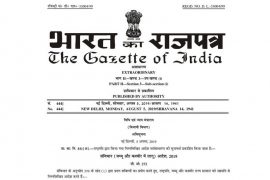15 years have passed since the last National Wildlife Action. In the earlier plans of 1978 and 2002, India’s wildlife policy underwent incremental changes, but climate change had yet to find a mention.
This changed on October 2, 2017, when the Union Ministry for Environment, Forest and Climate Change (MoEF) Harsh Vardhan released the latest National Wildlife Action Plan (NWAP) for 2017-2031 in New Delhi. The latest plan, whose full details are yet to be published on the MoEF website, includes seven conservation actions and 11 projects relating to climate change for the first time.
The minister released the new plan at the inauguration of the Global Wildlife Programme, a global partnership by the World Bank that aims to tackle the threat of illegal wildlife poaching. The third edition of the GWP, hosted in Delhi, saw 19 Asian nations meet on the issues of poaching such as that of tigers and rhinoceroses. Illegal poaching persists in India, but the country has made headway in places like Kaziranga – albeit through brutal means (poachers are shot on sight, and vigilantism is not uncommon).
At the programme, the Union Minister emphasized the use of modern technology to counter poachers and wildlife crimes. Such measures could include the increased use of Unmanned Aerial Drones to monitor wildlife populations – which have already been deployed by agencies like the National Tiger Conservation Authority and the Wildlife Institute of India (WII), Dehradun. The Kaziranga National Park has already made headway in using drones to track illegal poachers.
-30-
Copyright©Madras Courier, All Rights Reserved. You may share using our article tools. Please don't cut articles from madrascourier.com and redistribute by email, post to the web, mobile phone or social media.Please send in your feed back and comments to [email protected]










